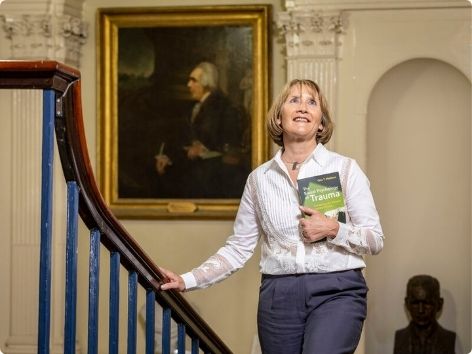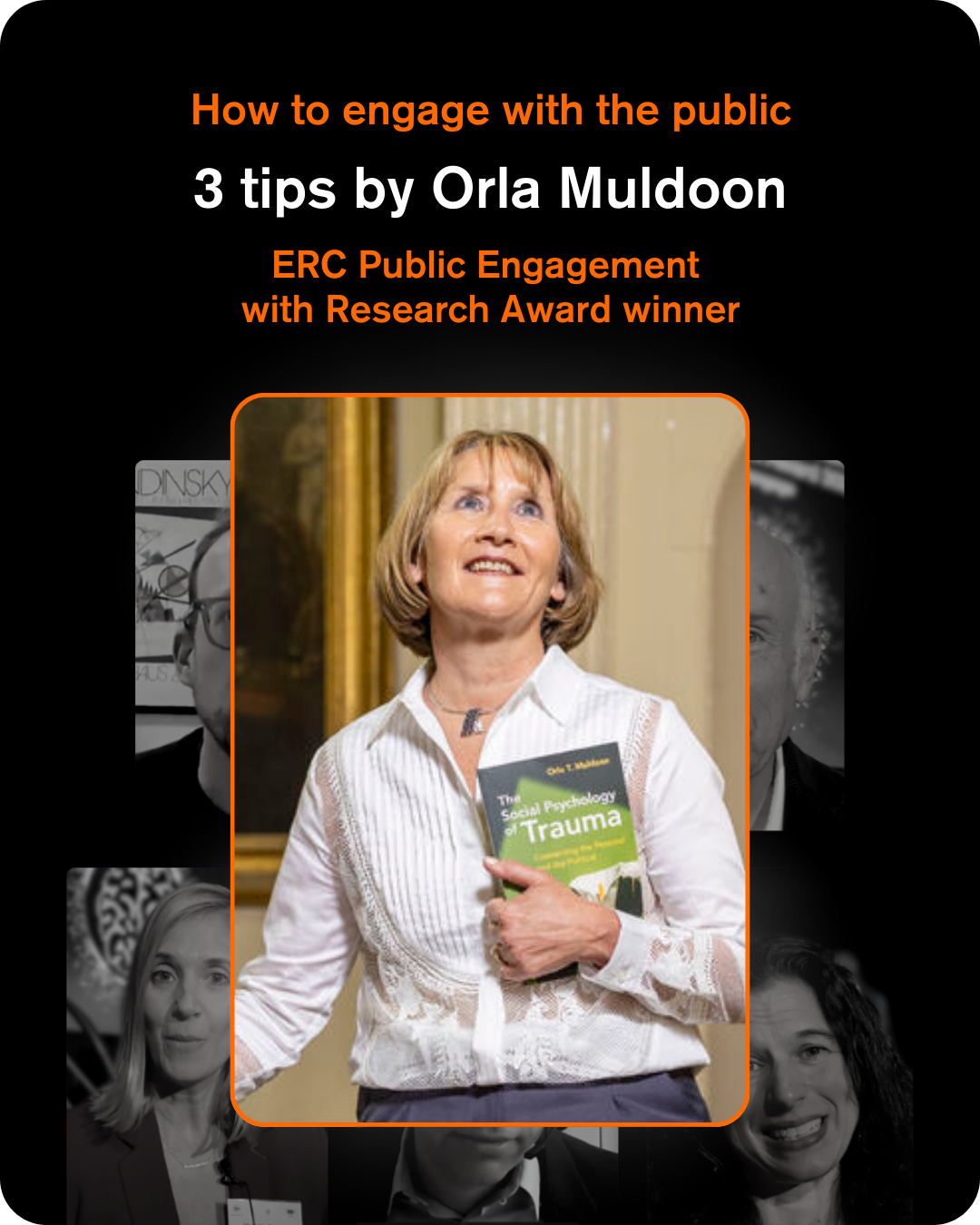Communicating complex ideas for societal change

Through media engagement, policy advocacy, and public discourse following a tragic murder case in Ireland, Orla Muldoon has advanced public understanding of gender-based violence, leading to concrete policy changes.
The murder of Ashling Murphy, a 23-year-old Irish teacher, in January 2022 became a pivotal moment for Muldoon. Murphy was attacked while jogging along the Grand Canal near Tullamore, County Offaly, during daylight hours. The brutal killing sent shockwaves through Irish society and sparked a national conversation about violence against women.
While the media often portrayed Murphy's murder as a ‘random attack’ or an isolated incident, Muldoon saw an opportunity to challenge this narrative. Drawing on her research, she initiated a public engagement programme aimed at highlighting the systematic nature of gender-based violence. Muldoon’s outreach efforts focused on revealing how such violence is facilitated by broader social constructions of gender relations.
 Muldoon emphasises that understanding gender-based violence as ‘a collective issue rather than singular acts’ is crucial for addressing it effectively. This perspective shifts the focus from framing violence against women as a ‘women's issue’ to highlighting its broader social and public health implications.’
Muldoon emphasises that understanding gender-based violence as ‘a collective issue rather than singular acts’ is crucial for addressing it effectively. This perspective shifts the focus from framing violence against women as a ‘women's issue’ to highlighting its broader social and public health implications.’
The murder of Ashling Murphy highlighted a particular paradox that Muldoon found troubling: ‘It was annoying to watch women being berated for not exercising enough while also facing aggression when they do.’ This observation underscored how gender-based violence restricts women's freedoms and participation in everyday activities. Recognising this paradox motivated Muldoon to challenge the narrative around gender-based violence through public engagement.
It was annoying to watch women being berated for not exercising enough while also facing aggression when they do
Muldoon's engagement began with an opinion editorial in The Irish Times, which garnered significant attention. This led to further opportunities to discuss the issue on national radio, podcasts targeting male audiences, and through various art, science, and educational projects. Her public advocacy extended beyond raising awareness to actively engaging with policymakers and institutions that could affect tangible change.
 One of the most significant challenges Muldoon encountered in her public engagement work was translating academic concepts into language accessible to the general public. She realised that academic terms like 'asymmetrical violence' were inaccessible and hindered public understanding. In response, Muldoon developed more accessible analogies, such as comparing the system to a 'corrupted national lottery,' to explain how the risk of sexual violence is systematically biased against women.
One of the most significant challenges Muldoon encountered in her public engagement work was translating academic concepts into language accessible to the general public. She realised that academic terms like 'asymmetrical violence' were inaccessible and hindered public understanding. In response, Muldoon developed more accessible analogies, such as comparing the system to a 'corrupted national lottery,' to explain how the risk of sexual violence is systematically biased against women.
Muldoon’s work contributed significantly to the establishment of Cuan, a statutory agency dedicated to tackling gender-based violence in Ireland. A passage from her opinion editorial was quoted during a debate in Ireland's national parliament, demonstrating the reach and influence of her work on national policy discussions.
‘Since that time, I have made myself available to news media to talk about these issues as coverage ebbs and flows’, she says. ‘All these efforts contribute to this important public debate and national policy development in the area.’
It was important to be mindful of the bereaved family and not appear to exploit their loss for political purposes.
Public engagement on sensitive topics like gender-based violence presents unique challenges. Muldoon acknowledges the delicate balance required when using a tragic event like Ashling Murphy's murder as a platform for broader advocacy. ‘It was important to be mindful that this issue touches many women's lives and that there was a bereaved family. I needed to avoid the appearance of exploiting their loss for political purpose.’
Muldoon’s work was also exposed to online harassment, which she found unproductive and often hostile. Reflecting on her experience, she notes that if she were to undertake the project again, she would avoid using Twitter/X due to the negativity and pushback she encountered.
Despite these challenges, Muldoon remains committed to the importance of public engagement for scientists. Her experience offers valuable insights for other researchers seeking to engage with the public on complex and sensitive social issues. It demonstrates that public engagement can lead to significant real-world impact that extends far beyond academic publications. Muldoon emphasises that ‘revealing social phenomena and using research to improve lives’ is both rewarding and important.

 Biography
Biography
Orla Therese Muldoon is a social and political psychologist. She was recently (2025) appointed as a Professor and Head of School of Psychology at Queens University of Belfast. She remains in a part-time role at the University of Limerick where she was appointed in 2007 to lead a new psychology department, Muldoon held faculty positions previously at Ulster University and Queen's University Belfast. In 2022, she was elected to the Royal Irish Academy. Her ERC Advanced Grant project SIMTIC examines how traumatic experiences affect not just individuals but also their sense of belonging to social groups, and how these group identities can influence recovery, resilience, and even growth following trauma.

